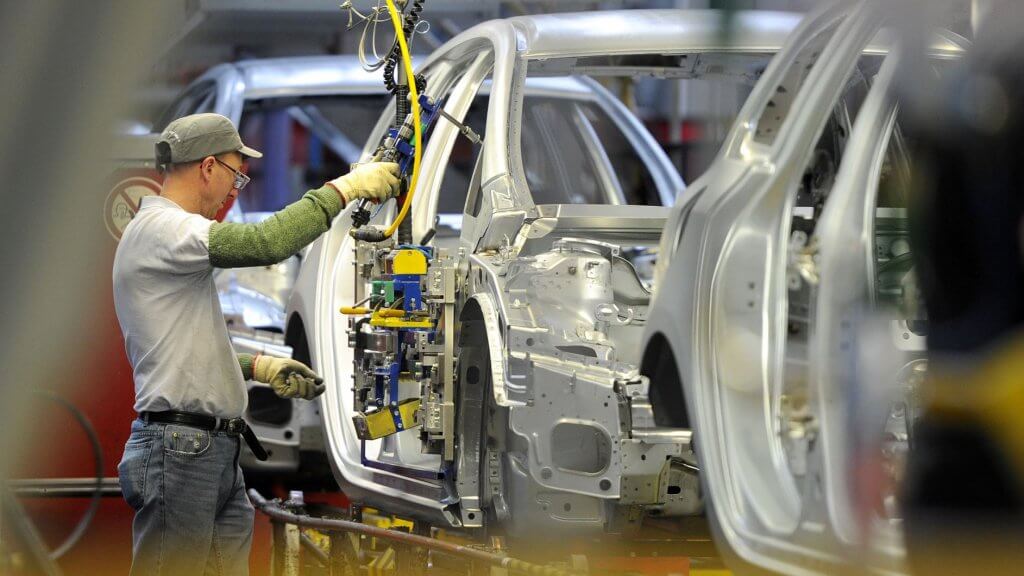How To Boost Efficiency In Your Manufacturing Business

Manufacturing is arguably the beating heart of the UK’s economy, with the Office for National Statistics estimating that the total value of UK manufacturers’ product sales was £358.7 billion in 2020.
Modern manufacturers in all sectors must process several raw materials, which is expensive and can lead to significant waste and by-products. In addition, producing below actual capacity can result in lost revenue. Therefore, it is prudent to improve your company’s efficiency for the best results. Below are some tips to make your manufacturing business more efficient.
- Robust employee training programme
Many experts agree that inefficiency, one of the biggest problems of manufacturers, can be solved through employee training. Therefore, consider training your workers in multiple processes so they can act as substitutes and assist one another with troubleshooting.
Additionally, train them on new technology and equipment to enjoy the most value. It is also advisable to familiarise employees with your company’s policies to make your business operations run smoothly and improve communication. However, remember that employee training is an ongoing process, so it would be best to be consistent and re-train at least once yearly.
- Update your equipment and technology
It is common knowledge that manufacturing equipment and technology significantly affect output. For instance, a vapor blasting machine can be a game-changer for cleaning and finishing surfaces with precision, offering a more efficient and eco-friendly alternative to traditional methods. Similarly, advanced CNC machines or automated cutting tools can enhance production accuracy. Likewise, incorporating a system on a module into manufacturing processes can optimize automation, facilitate real-time data processing, and strengthen machine-to-machine communication. As a result, businesses can boost efficiency, minimize downtime, and respond more flexibly to changing production requirements.
Without modern, reliable equipment, improving your company’s efficiency becomes a significant challenge. If the equipment and technology used in your manufacturing process are outdated or poorly functioning, it will be difficult to maintain productivity, irrespective of how skilled your employees are. Consequently, review all your current equipment and technology to determine whether they are optimal for your present business needs.
Then, invest heavily in modern equipment to boost the production process. For instance, you can install electric linear actuators to lift, pull, or push heavy loads in your large-scale manufacturing process instead of relying on less efficient alternatives like manual labour and hydraulic or pneumatic alternatives.
Then, invest heavily in modern equipment to boost the production process. For instance, you can install electric linear actuators to lift, pull, or push heavy loads in your large-scale manufacturing process instead of relying on less efficient alternatives like manual labour and hydraulic or pneumatic alternatives.
- Reduce material waste
Materials, space, man-hours, and energy are some of the few things that can be wasted in a manufacturing company. However, material waste is particularly concerning since it is most common in manufacturing plants.
Indeed, the UK reportedly generated 43.9 million tonnes of industrial and commercial waste in 2018 alone. Fortunately, you can reduce material waste by focusing on a design using methodologies like value engineering that advocate fewer materials.
Recycle your scrap or sell it to a factory that can, or simply optimise your processes to use all available materials. For instance, tooltips can be sharpened and reused instead of thrown away, so keep this in mind. Additionally, consider cardboard baler hire to compress and repurpose cardboard waste, reducing clutter and making recycling more efficient. Similarly, think about using pallet wrap machines to minimise excess packaging or integrating automated sorting systems to separate reusable materials with precision.
Another great way to reduce material waste is to consult the right experts, such as process measurement specialists, who are like efficiency crusaders for manufacturing businesses. They bring expertise in precise measurements and cutting-edge instrumentation, helping streamline operations and reduce waste. They’re skilled in manufacturing products best suited to your business needs, meaning less downtime, improved product quality, and greater efficiency.
- Conduct regular preventive maintenance
The quickest way to slow things down in your manufacturing business is by disregarding regular maintenance. Equipment breakdowns often happen at the worst possible times, and the resulting downtime can cost you a lot of time and money. Luckily, maintaining your manufacturing equipment is way cheaper than replacing them.
It would help to conduct regular preventive maintenance based on the equipment type. You can use asset management software to monitor equipment conditions and automate maintenance scheduling, so keep this in mind.




